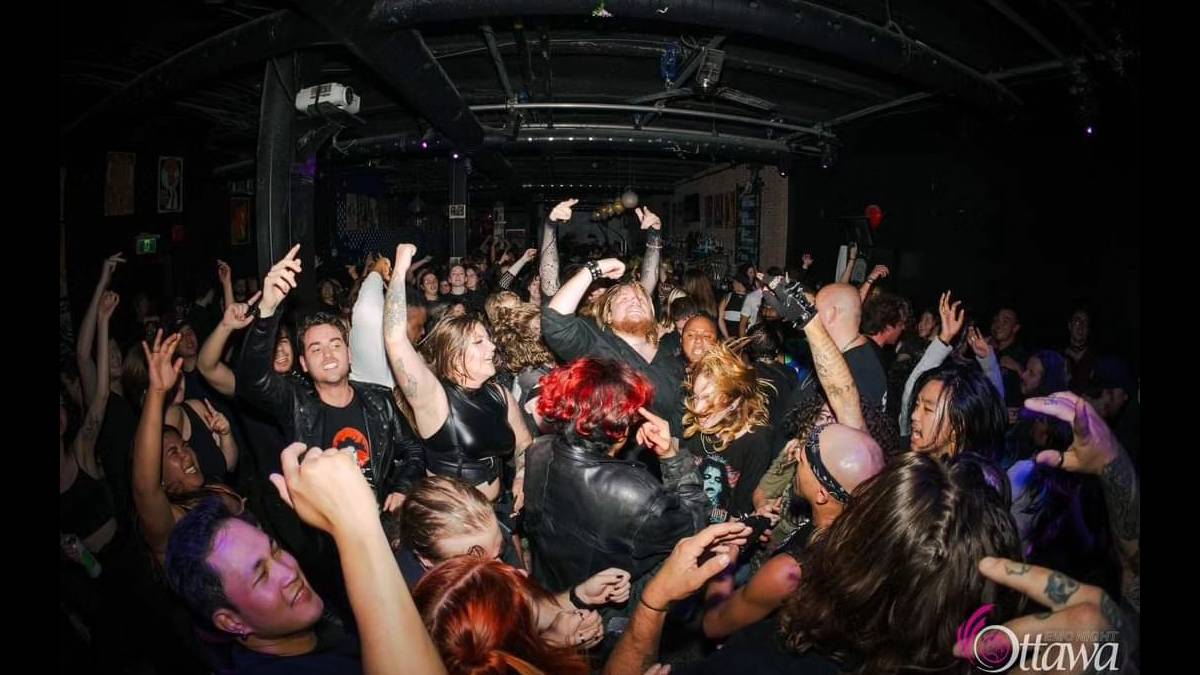For years, goths, emos, metalheads and punks have been the subjects of lingering myths and misconceptions.
Many who belong to these subcultures in Ottawa say such myths have led to negative comments and a lack of support for the community, and in some cases have added to personal struggles.
But with fall underway and Halloween around the corner, live music and social events are being organized to buttress Ottawa’s alternative music scene and provide a safe space for people to express themselves.
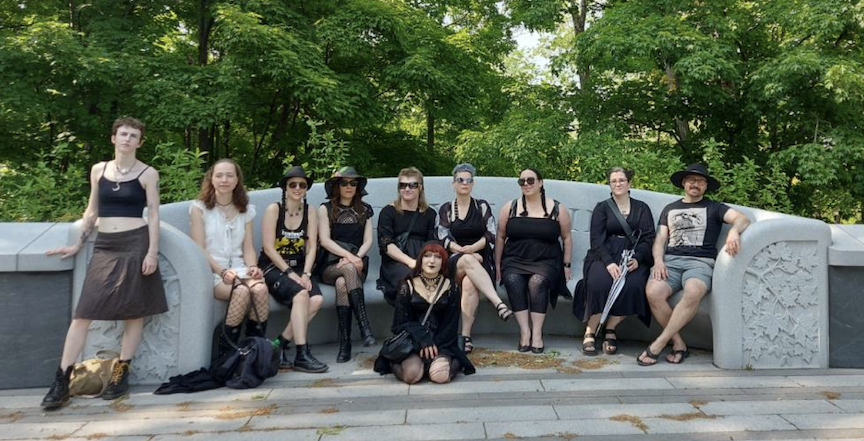
Since the mid- to late-1970s, these music-based subcultures of emos, goths, punks and metal heads have grown into communities of people who celebrate their love of alternative music and fashion.
“I’ve always been attracted to dark imagery, whether that’s horror movies and dark music, along with metal; it made sense to eventually get into goth and industrial music,” says Eric Mulligan, a DJ who specializes in goth industrial music mixes.
Mulligan, also known as DJ Reverie, says that goths are often described as emotionless, are stereotyped as dressing only in black and are assumed to be unproductive members of society. Mulligan has faced personal struggles because of these misconceptions. DJ Reverie shares his goth industrial music mixes on a podcast, #PositronicRadio.
“I might also try to go out of my way to be perceived positively by other people because of the negative stereotypes,” says Mulligan.
Along with Mulligan, DJs such as Erika Cao, also known as DJ The Shade, have hosted goth nights called Retro/Underground at Ottawa’s Swizzles Bar and Grill, celebrating the alternative music styles of classic goth and post-punk.
Cao feels that alternative black clothing and makeup, as well as listening to music from bands such as Depeche Mode and Rammstein, allows her to best express herself.
Yet goth and emo rock has been associated with “depression, self-injury, and suicide,” according to an article published by Diffen. Cao disagrees. “Just because the music is full of angst doesn’t automatically mean every kid with hair in their face and tonnes of eyeliner hates everyone and themselves.”
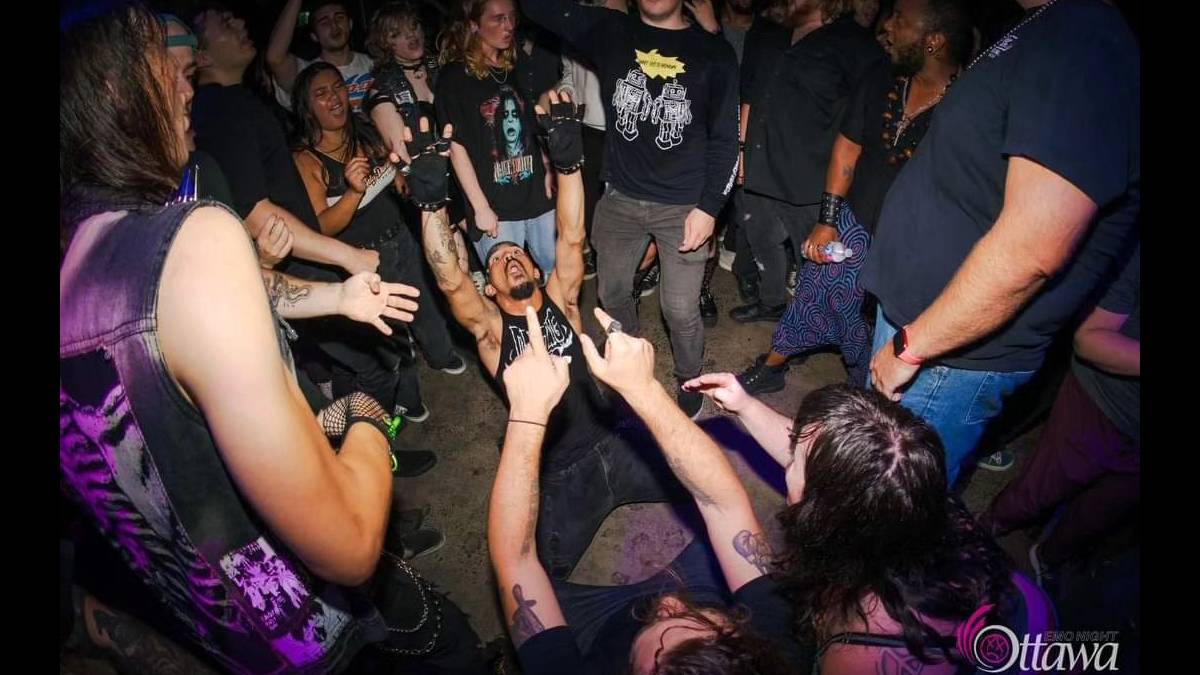
Additionally, Cao says that goths are often misinterpreted as having a morbid fixation on death and dying. That misses the point, says Cao. “Goths are much more open to subjects like death and dying, getting old, and seeing and appreciating the beauty in the darker aspects of life without being consumed by them,” Cao says.
Members of the community say the media has perpetuated stereotypes, such as the widespread association of goth fashion and alternative music with the 1999 Columbine High School massacre.
“As an early millennial, (I think) the Columbine High School massacre had a huge impact in how goth and industrial was perceived. Suddenly, you went from being the weird person to a potential school shooter,” says Mulligan.
Newspapers described the shooters as outcasts who “spent their entire adolescence deep inside the morose subculture of Gothic fantasy,” according to The Washington Post, and were a “group also interested in the occult, mutilation, shock-rocker Marilyn Manson and Adolf Hitler,” according to The Denver Post.
“God forbid you wore a black trench coat for years after that incident. The media called those boys goths for flimsy reasons, and all of a sudden goths were timebombs of hidden violence and malice waiting to happen,” says Cao.
Zane Bastien, a sales associate at the alternative clothing store Hot Topic and member of Ottawa’s alternative music scene, understands the dangers of these stereotypes.
“People think we are really mean or are always looking for a fight,” says Bastien.
Associating themselves with the new goth and punk scene, Bastien says they have additional concerns over the sexualization of female members of the community.
“Older women typically hate me and older men typically lust for me, which makes me super uncomfortable,” says Bastien.
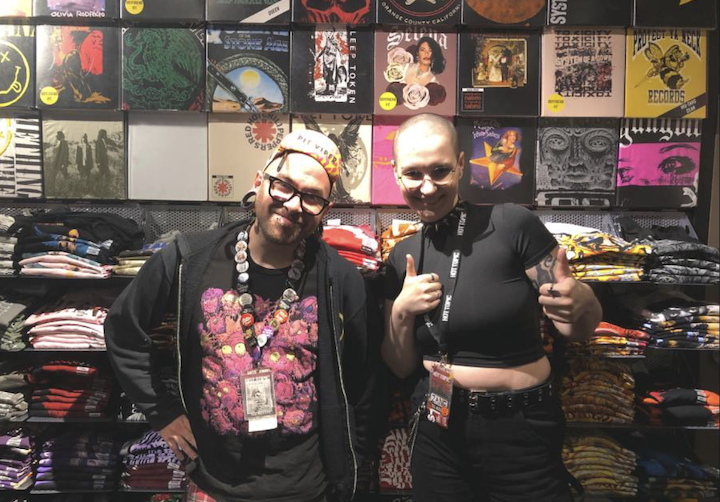
Meanwhile, organizations such as The Outsider Collective are working to revive Ottawa’s alternative music scene. “Now, we have the longest-running goth night in Ottawa at almost nine years old, and there’s many new faces in the crowd these days,” says Cao.
Created by Colin Jaques, Emo Night Ottawa is one of the largest themed events in Ottawa, catering to the emo music scene.
“There wasn’t anything in Ottawa that was that sort of vibe … so we just started doing it,” says Jaques.
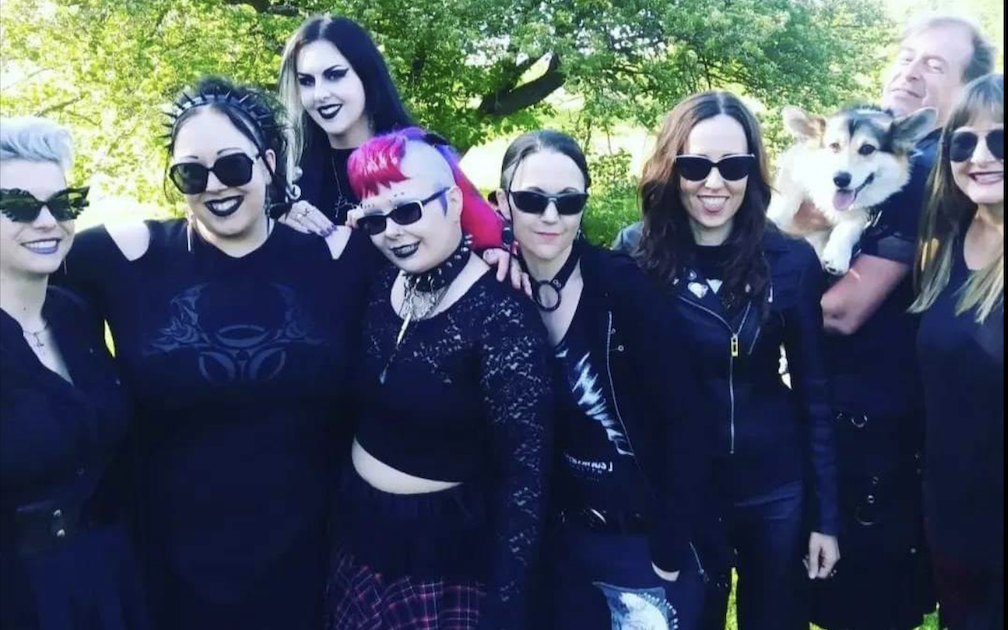
Selling out 90 per cent of their events, Emo Night Ottawa welcomes 200 to 300 guests each night.
“With post-pandemic resurgence, we see more people dressing up, like the goth crew and the emo kids which is really neat to see,” says Jaques.
“Subculture support is important, whether it’s punk, goth, emo, metal, whatever. Everyone needs a place or a night where they can feel like they belong, listen and dance to the music they love, and have a good time,” says Cao.
Some brief definitions
Goth: Music-based subculture characterized by gothic rock and post-punk, first popularized in the early 1980s.
Emo: Lifestyle based on ’emocore’ music which is characterized by emotional and confessional lyrics of post-punk/hardcord punk rock music, first popularized in the late 1990s and early 2000s.
Punk: Lifestyle based on garage rock and punk rock, characterized by anti-establishment rules and individual freedom through art and fashion, first popularized in mid-1960s and throughout the 1970s.
Metalheads: Music-based subculture characterized by the hardcore music styles of heavy metal, first popularized in the 1970s and 1980s.

